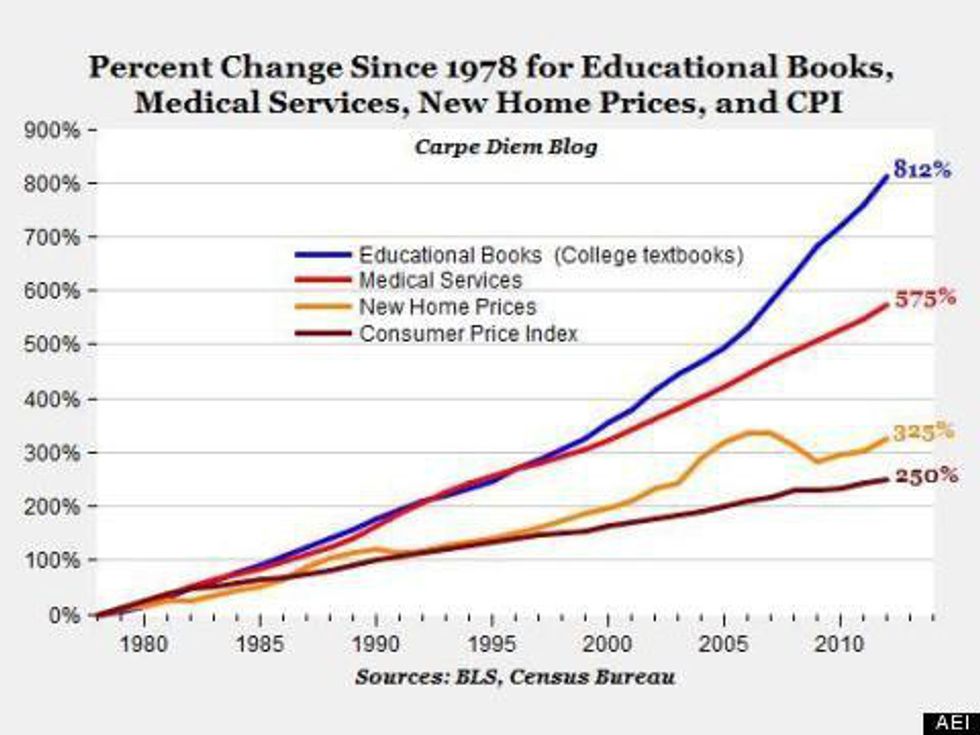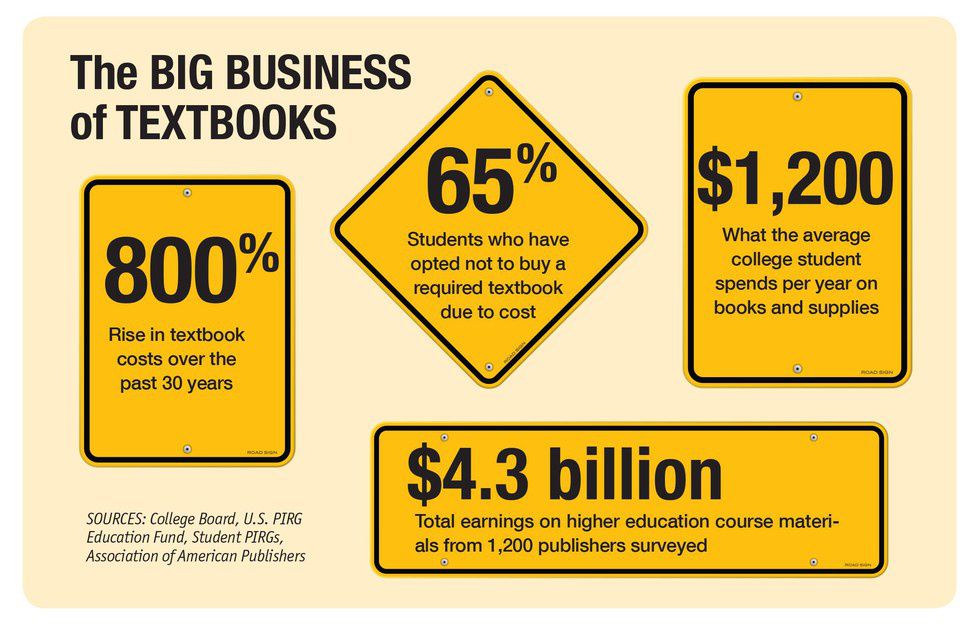The woes of the college student: bad roommates, student loans, moving into the fourth floor and now in the recent decades, insanely high textbook prices. The average student will spend about $655 on books, but a single book could easily cost $300 on its own sometimes. And students have very little choice in this matter.
For most classes, a book is required to even have a remote chance at passing. Assignments and notes are taken directly from the book. The companies who publish those texts know that students need them, so they jack up the prices. What else can the students do but pay up?
Most schools demand all classes to require the latest edition of the textbooks, too, meaning anyone who tries to buy the previous one to save some cash is screwed. Any student that tries to make any cash by selling their book is almost always shorted because their copy wont be worth anything after that year.
But the crazy thing is, the difference between most editions is minuscule. Simple rearrangements of chapters, slight changes in paragraphs and problems. But it's enough to render the previous edition useless for classes, and therefore it loses all buyback potential. Students typically don't get more than 40 percent back for their textbooks.
The prices of textbooks themselves are insane in their own right. Most books are at least $200 or more. In fact, since 1978 the price of textbooks has increased by 812 percent. The prices only keep going up, thanks to a majority of the books coming from five publishers who collaborate to keep increasing prices and revenue for themselves.
The prices are so steep, there are students debating whether or not to even buy the books necessary to pass. They would rather take the hit to their grades as opposed to their wallets. Which is concerning since the whole point of college is to learn and score high to earn a degree. 65 percent of students wont buy the required textbooks simply because of the cost.
But all is not lost! There are ways to avoid spending hundreds of extra money on books.
1. Rent them
Many colleges offer rental from their own bookstores. While this is convenient, rentals from the Internet tend to be cheaper. Most vendors offer free return shipping and optimal competitive prices. Amazon tends to be the better option, however a site like slugbooks will compare prices (renting and buying) of several other sites to help you find the best deal.
2. Get an e-textbook
In the modern age, more and more professors allow laptops/tablets in their classrooms. More often than not, e-texts are much cheaper than their hardcover counterparts. It not only saves cash but space in your bag, too.
3. Find them for free
Some books are actually available for free download if one knows how to look for it. Sometimes it is as simple as typing the text name into Google with ".pdf" after it. A simple click of a link with "PDF" next to it, and you could possibly have a free book. Some might be viruses, but the desperate take those risks regardless.
4. Share with friends
For some classes, textbooks are only needed for homework or studying. Some students will form a group where they all gather and do the homework of of one book they all chipped in for, so as to save individual cost.
5. Previous editions
Sometimes, previous editions are so similar to the required one that a student can get away with spending exponentially less on an older copy. It takes some navigation and figuring out, (and maybe some help from the professor), but some make do with that setup rather well.
6. Ask the professor for a copy
When all else fails and you have no way of accessing a copy for yourself, the professor for the class may see fit to allow you to use a copy of theirs, or tell you how to find it online somehow. You don't know until you try.





















